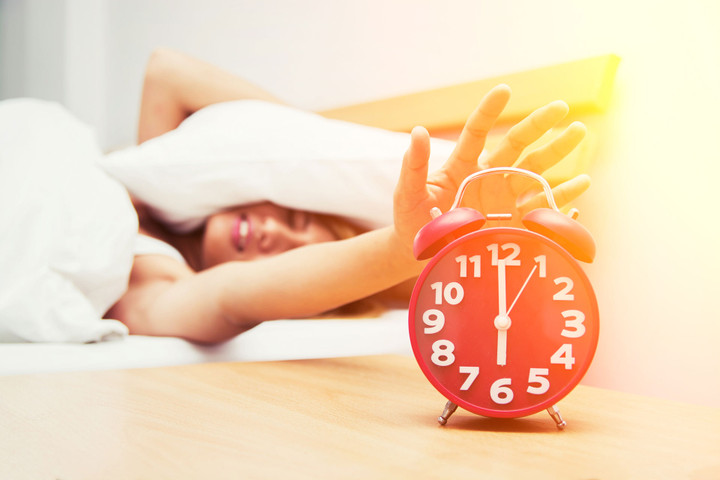From Counting Sheep to Cutting-Edge Tech: 7 Tips for Better Sleep
Posted by SleepSense on 3rd Oct 2023
Do you find yourself tossing and turning at night, unable to catch those elusive Z's? You're not alone. Many people struggle with sleep issues, but there's hope. Whether you prefer classic methods like counting sheep or are interested in the latest sleep tech, we've got seven tips to help you achieve better sleep.
Tip 1: The Classic Method – Relaxation Techniques
Benefits of Relaxation Techniques:
Counting sheep may sound cliché, but the idea behind it holds merit. Relaxation techniques like deep breathing and progressive muscle relaxation can calm your mind and prepare your body for sleep. Here's how to do it:
- Deep Breathing: Lie down in a comfortable position. Inhale slowly and deeply through your nose, counting to four. Hold your breath for a count of four, then exhale through your mouth for a count of four. Repeat until you feel relaxed.
- Progressive Muscle Relaxation: Start at your toes and work your way up, tensing and then relaxing each muscle group. Focus on the sensations of tension and relaxation as you move through your body.
Tip 2: Counting Sheep – The Power of Visualization
Visualization for Better Sleep:
Counting sheep isn't just about numbers; it's about the calming effect of visualization. Picture a serene and peaceful scene in your mind. Imagine yourself in a tranquil meadow, on a calm beach, or in a cozy cabin. As you visualize these soothing scenarios, your mind begins to relax, making it easier to fall asleep.
Tip 3: The Sleep Environment – Setting the Stage for Rest
Creating a Sleep-Conducive Bedroom:
The environment in which you sleep plays a crucial role in your sleep quality. Ensure your bedroom is conducive to rest:
- Lighting: Keep your bedroom as dark as possible. Use blackout curtains to block out external light sources.
- Temperature: Maintain a comfortable room temperature, usually around 65-70°F (18-21°C).
- Noise Reduction: Use white noise machines or earplugs to block out disruptive sounds.
- Comfortable Mattress and Bedding: Invest in a comfortable mattress and quality bedding that suits your preferences.
Tip 4: Cutting-Edge Tech – Sleep Tracking Devices
Benefits of Sleep Tracking:
Modern technology offers numerous tools to monitor and improve your sleep. Sleep tracking devices, such as smartwatches and dedicated sleep trackers, can provide valuable insights into your sleep patterns. These devices analyze your sleep stages, heart rate, and movement to offer personalized recommendations for better sleep.
When choosing a sleep tracker, consider factors like accuracy, ease of use, and battery life. Popular options include Fitbit, Apple Watch, and dedicated sleep tracking apps.
Tip 5: The Impact of Diet – Foods That Promote Sleep
Sleep-Friendly Foods and Nutrients:
What you eat can significantly impact your sleep quality. Incorporate these sleep-friendly foods and nutrients into your diet:
- Tryptophan: Found in turkey, chicken, and nuts, tryptophan is a precursor to serotonin and melatonin, both of which promote sleep.
- Magnesium: Foods rich in magnesium, like spinach, almonds, and pumpkin seeds, can help relax your muscles and improve sleep.
- Cherries: Tart cherries are a natural source of melatonin, making them an excellent choice for a bedtime snack.
- Herbal Teas: Chamomile and valerian root teas are known for their relaxing properties and can be consumed before bedtime.
Tip 6: Physical Activity – Exercising for Better Sleep
The Link Between Exercise and Sleep:
Regular physical activity can improve sleep quality. Engaging in moderate aerobic exercises like walking, swimming, or cycling can help you fall asleep faster and enjoy deeper sleep.
However, avoid strenuous exercise close to bedtime, as it can be stimulating and make it harder to wind down. Aim to complete your workout at least a few hours before hitting the sack.
Tip 7: Mindfulness and Meditation – Clearing the Mind for Sleep
Benefits of Mindfulness and Meditation:
Mindfulness and meditation practices can calm your mind and reduce stress, making it easier to drift off to sleep. Here's a simple mindfulness exercise to try:
- Find a comfortable seated or lying position.
- Close your eyes and take a few deep breaths to relax.
- Focus your attention on your breath. Notice the sensation of your breath as you inhale and exhale.
- If your mind starts to wander, gently bring your focus back to your breath without judgment.
By incorporating mindfulness and meditation into your bedtime routine, you can create a sense of tranquility that encourages restful sleep.
In conclusion, achieving better sleep doesn't have to be a dream. From classic relaxation techniques to cutting-edge sleep tracking devices, there are numerous ways to improve your sleep quality. Experiment with these tips and find the combination that works best for you. With a little effort and a commitment to better sleep hygiene, you can enjoy more restful nights and wake up feeling refreshed.
Sweet dreams!
İmage by jcomp on Freepik

